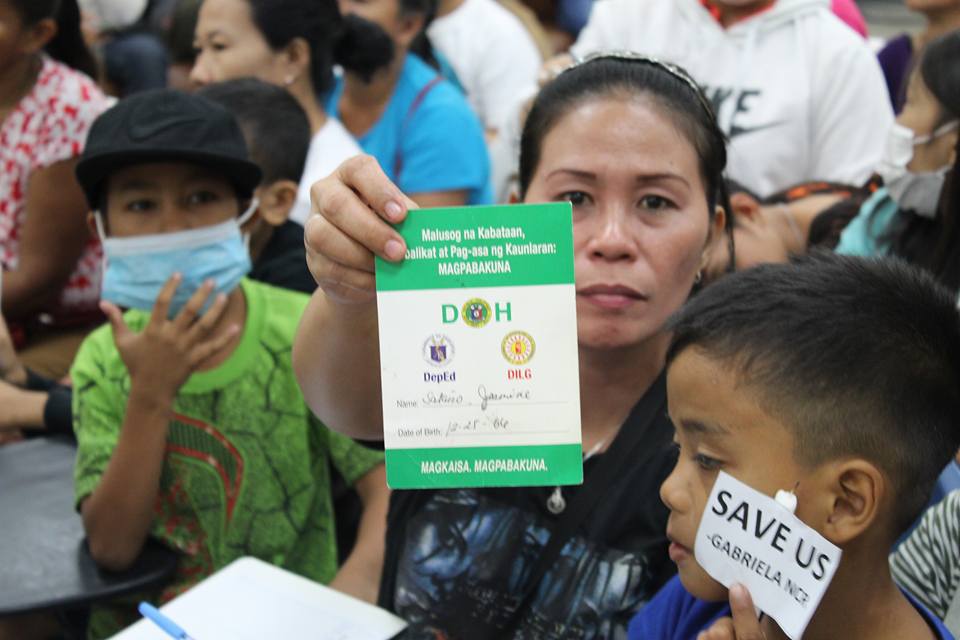Headline
Sanofi dismisses hiding risks of Dengvaxia from PH

FILE: French pharmaceutical giant Sanofi Pasteur on Wednesday dismissed accusations that it concealed risk of its anti-dengue vaccine Dengvaxia from the Philippines in 2015. (Photo: Department of Health (Philippines)/Facebook)
French pharmaceutical giant Sanofi Pasteur on Wednesday dismissed accusations that it concealed risk of its anti-dengue vaccine Dengvaxia from the Philippines in 2015.
“Sanofi Pasteur would like to address the inaccurate information regarding the transparency of data and findings related to Dengvaxia. All our vaccines undergo extensive clinical investigations and their efficacy, safety and public health impact is continuously followed up post license,” Sanofi said in a statement.
The French firm defended that there was no information about the risks of the vaccine until November 2017.
“For the dengue vaccine, from the time of the sale, until November 2017, we had no information or data with regards to the serostatus of the vaccinees showing a different product profile in the population of nine-years-old and above,” it said.
Sanofi added that they immediately disclosed its findings, based on a six-year analysis of clinical data, on November 29 last year.
“We learnt of the different product profile of the dengue vaccine for those with or without a previous dengue infection in November 2017 and Sanofi Pasteur has shared the new data in full transparency with national health authorities countries where the vaccine is approved or where it is being considered for regulatory approval,” it added.
During a congressional hearing into the now-suspended dengue immunization program, Food and Drug Administration (FDA) Director-General Nela Charade Puno claimed that the drug maker was well-aware of the risks of Dengvaxia, however, it did not inform the Philippine government.
According to Puno, the DFA’s special task force assessed the papers Sanofi submitted to Singapore that allowed the commercial sale of Dengvaxia in their country in October 2016.
Puno added that the French company could have been aware of the possible risks of Dengvaxia as it already informed Singapore that it will cause severe dengue if administered to an individual who has not been infected by the mosquito-borne disease.
“In their publication, they already announced it’s not to be used for patients who haven’t had dengue [before vaccination],” Puno said.
“So ibig sabihin, alam nila. Dapat [noong] December 22, 2015, alam na nila at dapat sinabi na nila sa Pilipinas na hindi ito puwede sa mga batang ‘di pa nagkakaroon ng dengue (It means that they know it already. On December 22, 2015, they know it already and should have informed the Philippines that the vaccine cannot be given to children who haven’t had dengue),” she added.
It was also on December 22 when the DFA permitted Sanofi to commercially sell Dengvaxia in the country. Sanofi only issued the warning on its vaccine in November last year.
Due to this admission, the government’s immunization program was halted. This program, launched by former Health Secretary Janette Garin in April 2016, vaccinated at least 833,000 public school pupils.
The Department of Health (DOH) requested Sanofi to fully reimburse the fund used in purchasing the vials and provide indemnification fund to those who received the vaccine.
The drug maker, however, rejected this request saying that refunding the used doses of Dengvaxia would only mean that the vaccine is ineffective, “which is not the case.” It added that there is also “no known circumstance requiring indemnification.”





















